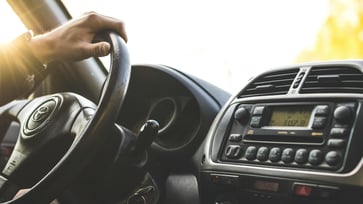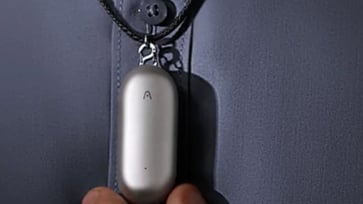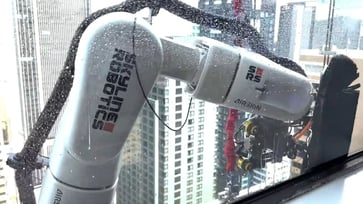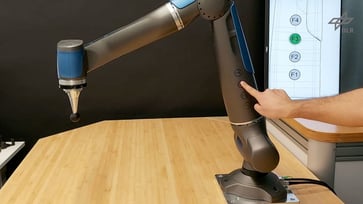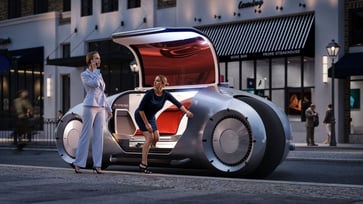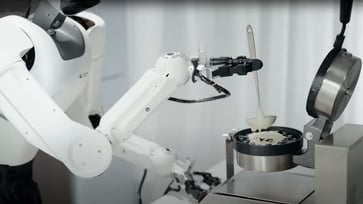Police cars are now high-tech watchdogs thanks to Ford's new technology.
Speed cop technology patented by automaker.
The patent application filed by Ford Motor Company for "Systems and Methods for Detecting Speeding Violations" has sparked controversy about privacy and surveillance on our roads. The system proposed in the patent could turn Ford vehicles into mobile speed detectors, enabling them to report other drivers to the police for speeding violations.
Although the patent application was submitted to the USPTO in January 2023, it was officially published by the USPTO on July 18, 2024.
This technology, although innovative, has the potential to revolutionize traffic law enforcement but also raises significant concerns about privacy and civil liberties.

How it works
The system employs advanced onboard cameras and sensors to track the speed of nearby vehicles in real-time. If a vehicle is detected exceeding the speed limit, the system takes action. It captures a high-resolution image of the speeding vehicle, records the speed, time, and exact location of the violation, and then generates a detailed report containing this information.
Instant, actionable intelligence is provided to law enforcement via a secure internet connection after this data package is transmitted directly to police or roadside monitoring units.

Potential benefits of the proposed system
The implementation of an automated speed limit enforcement system could lead to safer roads and reduced traffic fatalities. By automating the detection and reporting process, the need for high-speed police pursuits would be significantly reduced, keeping both officers and drivers safer. Additionally, the technology could be integrated into self-driving cars, creating a network of autonomous speed monitors patrolling our highways.
Concerns about the mobile speed detection technology
The use of autonomous vehicles raises concerns about privacy, legal issues, and the potential for wrongful accusations.

Ford's response
We contacted Ford to address growing concerns, and a spokesperson explained that the patent is specific for use in law enforcement vehicles, such as the Ford Police Interceptor, and it automates a capability that law enforcement already have in use today, utilizing the built-in system and sensors in the vehicle. The patent does not indicate that driving data from customers' vehicles will be shared with law enforcement, which is what some media have incorrectly reported. Patent applications are intended to protect new ideas but do not necessarily indicate new business or product plans.
The language in the patent application may allow for broader applications, possibly enabling future expansion of the technology's use.

Legal and practical challenges
The implementation of such a system would encounter various obstacles, including legal and practical challenges. The admissibility of evidence gathered without direct police observation could be questioned in court, rendering the system ineffective as a law enforcement tool. Additionally, the inability to verify the identity of the driver, similar to current speed camera limitations, could result in innocent vehicle owners being wrongly penalized for violations committed by others driving their cars. Furthermore, there is likely to be significant public opposition to what many would view as an intrusive surveillance system.
Kurt's key takeaways
Ford’s mobile speed detection technology patent presents a controversial development in traffic law enforcement, promising enhanced road safety and efficiency but raising critical questions about privacy and potential misuse. As this technology evolves, it is essential to balance its benefits with the protection of civil liberties, ensuring that advancements in safety do not compromise our personal privacy. The ongoing debate will shape the future of how such technologies are implemented and regulated.
How do you feel about the trade-off between technological advancements in traffic law enforcement and safeguarding personal privacy? Do you believe the advantages outweigh the potential dangers? Please share your thoughts with us at Cyberguy.com/Contact.
To receive my tech tips and security alerts, sign up for my free CyberGuy Report Newsletter at Cyberguy.com/Newsletter.
Let us know what stories you'd like us to cover.
Follow Kurt on his social channels:
Answers to the most asked CyberGuy questions:
New from Kurt:
Copyright 2024 CyberGuy.com. All rights reserved.
tech
You might also like
- How your online data can be used against you on TikTok
- Tesla's Cybertruck receives a military upgrade with a tactical twist.
- Apple redesigns AirPods Pro 2 as affordable hearing aids.
- The National Security Agency advises Americans to restart their phones weekly for security purposes.
- Intimidation tactics in sextortion scams are evolving with the use of Google Maps images.

